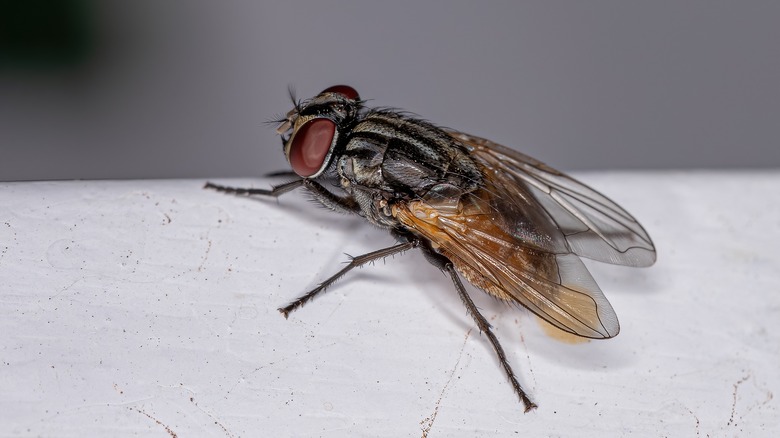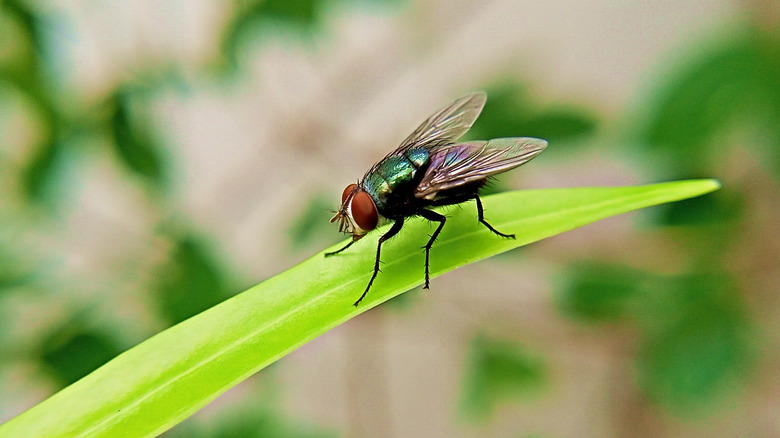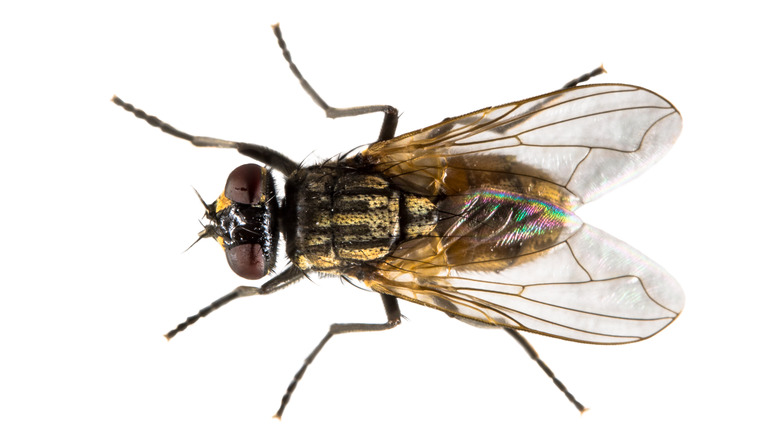The One Musical Key Houseflies Always Buzz In
Nobody likes houseflies. These annoying little pests — which tend to pop up just as your work gets busiest, like when the dishes have been sitting in your sink the longest — don't exactly look great buzzing around your house. More than that, though: They aren't very sanitary. Flies can be a vector of disease, according to the University of Queensland Australia. Because they land on just about any surface, including manure and other unsanitary items, they're constantly picking up bacteria on their feet (via Britannica). If they land on your countertops or your toothbrush or, God forbid, your food, that bacteria is transferred along with them.
Even if you're not worried about disease, you probably don't want flies hanging around your house, partly for the sake of appearances, and partly because of the annoying sound they make. Nothing's more frustrating than having a fly buzz by your head at seemingly random moments, with the irritating droning noise breaking up your perfect silence.
But as it turns out, that droning noise actually isn't random. House flies buzz in a specific musical key, and for good reason.
Anatomy of a housefly
We tend to think of flies as something of a monolith, but as any entomologist will tell you, they're actually super diverse. There are an estimated 150,000 different fly species, according to the University of Queensland Australia, though as Britannica reports, around 90% of flies found in your home are house flies.
Also called Musca domestica Linnaeus, house flies are known for feeding on pretty gross foods: namely, feces and garbage, according to the University of Florida. They also reproduce rapidly, meaning letting just a couple of houseflies into your home can quickly turn into a full-scale invasion. Most flies live between 15 and 60 days, and in that time can birth as many as 1,000 offspring, per Britannica. Like many insects, they undergo standard larva and pupa stages of development which culminate in their adult form: the classic, lightweight black housefly with huge eyes and ultra-thin wings.
But in none of their forms do houseflies have vocal cords (via Mental Floss). In fact, in terms of "speaking," they're entirely silent animals. So how do houseflies make that annoying buzz?
Why houseflies buzz in key
All animals that fly make sounds with their wings, including houseflies. For birds and bats, the noise is something like a "flap," because their wings are quite sizable but beat rather slowly, according to New Scientist. On the other hand, smaller animals — namely, insects and hummingbirds — beat their wings more frequently to keep themselves aloft, enough so that it creates a steady tone, per How It Works. As the website explains, "To generate the buzzing, flies' wings knock together. The speed at which their wings move determines the frequency of sound waves and the pitch released."
For flies, this works out to a pitch that is somewhere in the musical key of F major, per Mental Floss. Not every single fly hits the exact same notes: depending on the size of the fly, they'll emit slightly different tones. However, the same fly will always hit the same note.
Bees also beat their wings to the scale of F major. As Orkin points out, the buzzing of bees tends to be louder than that of flies.


